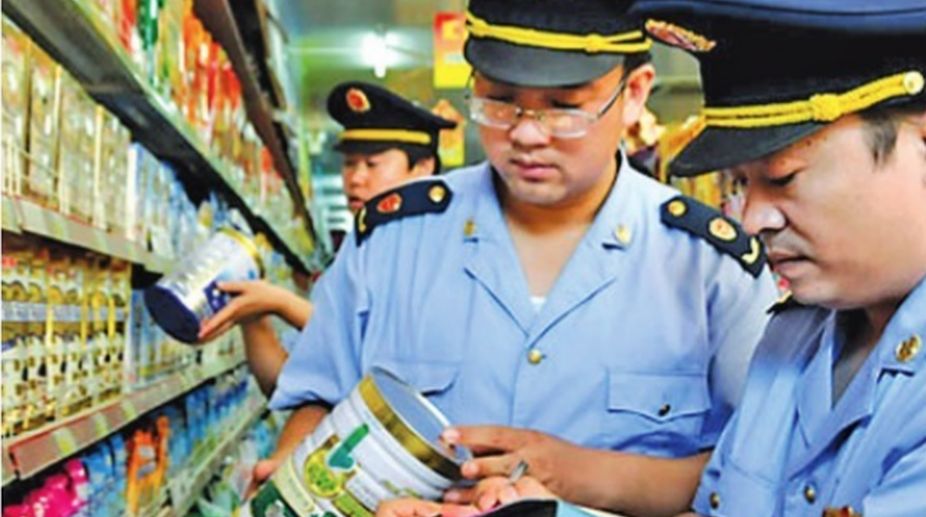Extensive efforts underway to prevent cancer: Saini
Haryana Chief Minister Nayab Singh Saini has said that cancer is a serious illness, but if its symptoms are detected early, treatment is possible.

From the land that brought you poisonous toothpaste, toxic pet food and milk powder that sickens and kills children now comes a new perilous product: fabricated papers in medical journals with fake peer reviews written by fabricated cancer specialists.
Last April, the publishing company Springer Nature announced that it was retracting 107 research papers by Chinese authors after discovering irregularities in the peer review process of articles published in the journal Tumor Biology between 2012 and 2016.
Advertisement
The retraction of over 100 papers constituted the largest single withdrawal of academic papers, according to Retraction Watch, which monitors academic fraud.
Advertisement
China has risen rapidly in recent years and has played an increasingly important role not only in the economy but in virtually all spheres. But, along the way, it also hit a few bumps, when greedy Chinese business people put money ahead of people’s safety and welfare in China and abroad.
Thus, in 2007, customers in the United States were told to discard all made-in-China toothpaste after federal officials found toothpaste containing a poison used in antifreeze in several American locations.
The same year, there was a pet food scare of gigantic proportions when many brands of cat and dog foods manufactured in China were recalled in North America, Europe and South Africa. There were numerous reports of animal deaths as a result of kidney failure.
The following year, within China, thousands of children were sickened after consuming milk powder contaminated with melamine, which had been added to watereddown milk to make it appear to be more nutritious. Many children developed acute kidney failure, a few of whom died.
Eventually, two individuals convicted of adding the industrial chemical to infant formula were convicted and executed.
Where academic papers are concerned, China is one of the world’s largest producers, churning out more than 300,000 articles a year that are sent to international journals.
Because the government uses publication in peerreviewed journals as a benchmark of academic performance, there is much pressure to publish such papers and an underground industry has sprung up to meet this demand.
Such practices as the writing of fabricated “peer reviews” using phony names reflect a shocking lack of integrity on the part of those who are considered part of the country’s academic elite. Most of the authors of the retracted works are not neophytes but are from top medical institutions in China.
After Springer Nature made its announcement, China announced a crackdown on academic fraud with the ministry of science and technology promising a “no tolerance” approach.
He Defang, director of the ministry’s regulatory division, was quoted as saying: “We should eradicate the problem from its roots.”
In fact, even Chinese courts backed stiff penalties for those who fabricate research studies that lead to the approval of harmful drugs and called for punishment that includes a 10-year prison term or even the death penalty.
At the end of July, the Ministry of Science and Technology announced the results of its investigation into the case. It largely upheld the decision made by Springer Nature.
At a press briefing, the ministry announced that, of 521 authors implicated, it deemed 11 to have been innocent with 24 others still under investigation. Of the others, 486 were found to be guilty of misconduct at various levels, with 102 mainly responsible, 70 secondarily responsible while 314 were found not to have participated in fraud but to have been negligent.
Twelve papers were purchased from third-party institutions, with 89 papers completed by the authors themselves. Nine were fake in content.
Director He said that the fraud had severely damaged China’s national image, and called for a healthier academic environment and harsher punishment for academic misdeeds.
As for punishment of those responsible, the director said that 376 authors had been banned from undertaking research programs for various period of time, and their qualifications for promotion had been cancelled, their research funds taken away from them and awards and honours revoked.
This is a wake-up call for China. Ten years after the scandals arose, both Chinese toothpaste and pet food is safe. Even the melamine scare appears to be largely over.
So China is no doubt fully capable of tackling the problem of academic fraud. But it won’t be easy and it is a sign that academic and other institutions need to be strengthened. It is way too early for China to rest on its laurels. A lot of hard work lies ahead, and there is no short cut to success for anyone, including doctors, scientists and researchers.
The China Post/ANN
Advertisement